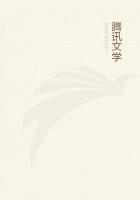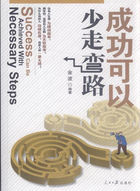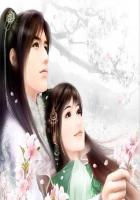THE story so far has been of men and of movements--of men who have, consciously or unconsciously, initiated great movements, and of movements by which, nolens volens, the men of the time were moulded and controlled. Hippocrates, in the tractate on "Ancient Medicine," has a splendid paragraph on the attitude of mind towards the men of the past. My attention was called to it one day in the Roman Forum by Commendatore Boni, who quoted it as one of the great sayings of antiquity. Here it is: "But on that account, I say, we ought not to reject the ancient Art, as if it were not, and had not been properly founded, because it did not attain accuracy in all things, but rather, since it is capable of reaching to the greatest exactitude by reasoning, to receive it and admire its discoveries, made from a state of great ignorance, and as having been well and properly made, and not from chance."[1]
[1] The Works of Hippocrates, Adams, Vol. I, p. 168, London, 1849 (Sydenham Society).
I have tried to tell you what the best of these men in successive ages knew, to show you their point of outlook on the things that interest us. To understand the old writers one must see as they saw, feel as they felt, believe as they believed--and this is hard, indeed impossible! We may get near them by asking the Spirit of the Age in which they lived to enter in and dwell with us, but it does not always come. Literary criticism is not literary history--we have no use here for the former, but to analyze his writings is to get as far as we can behind the doors of a man's mind, to know and appraise his knowledge, not from our standpoint, but from that of his contemporaries, his predecessors and his immediate successors. Each generation has its own problems to face, looks at truth from a special focus and does not see quite the same outlines as any other. For example, men of the present generation grow up under influences very different from those which surrounded my generation in the seventies of the last century, when Virchow and his great contemporaries laid the sure and deep foundations of modern pathology. Which of you now knows the "Cellular Pathology" as we did? To many of you it is a closed book,--to many more Virchow may be thought a spent force.
But no, he has only taken his place in a great galaxy. We do not forget the magnitude of his labors, but a new generation has new problems--his message was not for you--but that medicine today runs in larger moulds and turns out finer castings is due to his life and work. It is one of the values of lectures on the history of medicine to keep alive the good influences of great men even after their positive teaching is antiquated. Let no man be so foolish as to think that he has exhausted any subject for his generation. Virchow was not happy when he saw the young men pour into the old bottle of cellular pathology the new wine of bacteriology. Lister could never understand how aseptic surgery arose out of his work. Ehrlich would not recognize his epoch-making views on immunity when this generation has finished with them. I believe it was Hegel who said that progress is a series of negations--the denial today of what was accepted yesterday, the contradiction by each generation of some part at least of the philosophy of the last; but all is not lost, the germ plasm remains, a nucleus of truth to be fertilized by men often ignorant even of the body from which it has come.
Knowledge evolves, but in such a way that its possessors are never in sure possession. "It is because science is sure of nothing that it is always advancing" (Duclaux).
History is the biography of the mind of man, and its educational value is in direct proportion to the completeness of our study of the individuals through whom this mind has been manifested. I have tried to take you back to the beginnings of science, and to trace its gradual development, which is conditioned by three laws. In the first place, like a living organism, truth grows, and its gradual evolution may be traced from the tiny germ to the mature product. Never springing, Minerva-like, to full stature at once, truth may suffer all the hazards incident to generation and gestation. Much of history is a record of the mishaps of truths which have struggled to the birth, only to die or else to wither in premature decay. Or the germ may be dormant for centuries, awaiting the fullness of time.
Secondly, all scientific truth is conditioned by the state of knowledge at the time of its announcement. Thus, at the beginning of the seventeenth century, the science of optics and mechanical appliances had not made possible (so far as the human mind was concerned) the existence of blood capillaries and blood corpuscles. Jenner could not have added to his "Inquiry" a study on immunity; Sir William Perkin and the chemists made Koch technique possible; Pasteur gave the conditions that produced Lister; Davy and others furnished the preliminaries necessary for anaesthesia. Everywhere we find this filiation, one event following the other in orderly sequence--"Mind begets mind," as Harvey (De Generatione) says; "opinion is the source of opinion.
Democritus with his atoms, and Eudoxus with his chief good which he placed in pleasure, impregnated Epicurus; the four elements of Empedocles, Aristotle; the doctrines of the ancient Thebans, Pythagoras and Plato; geometry, Euclid."[2]
[2] Works of William Harvey, translated by Robert Willis, London, 1847, p. 532.
And, thirdly, to scientific truth alone may the homo mensura principle be applied, since of all mental treasures of the race it alone compels general acquiescence. That this general acquiescence, this aspect of certainty, is not reached per saltum, but is of slow, often of difficult growth,--marked by failures and frailties, but crowned at last with an acceptance accorded to no other product of mental activity,--is illustrated by every important discovery from Copernicus to Darwin.

